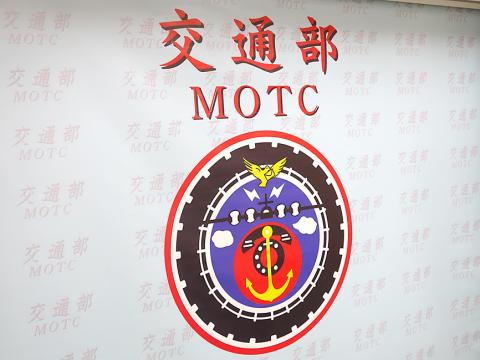The Taiwan Railways Administration (TRA) yesterday said it is seeking compensation from the manufacturer of a Puyuma train model involved in a deadly derailment in October last year and a third-party quality certification provider.
The Japanese manufacturer, Nippon Sharyo, a subsidiary of Central Japan Railway Co, is responsible for the train’s design flaws, while British certification provider Lloyd’s Register Quality Assurance failed to pinpoint the problems, a TRA official said.
TRA’s lawyers are drafting a letter to Sumitomo Corp, the bidder for the procurement project, asking it to pass the information to Nippon Sharyo, said Sung Hung-kang (宋鴻康), head of the TRA’s Rolling Stock Department.

Photo: Cheng Wei-chi, Taipei Times
The TRA plans is to take the same action against Lloyd’s, Sung said, adding that the letters are expected to be sent by the end of this month.
If the two companies accept their share of responsibility, the TRA would proceed to seek compensation, Sung said.
Nippon Sharyo has admitted a design flaw in all 19 of the Puyuma trains it sold to Taiwan, which prevents the train’s alert system from contacting the control station.
As a result, train dispatchers are not aware when the automatic train protection (ATP) system, which prevents trains from speeding, is turned off, unless the driver informs them.
The defective system played an important role in the Oct. 21 crash, when Puyuma Express No. 6432 derailed in Yilan County, while traveling at nearly twice the permissible speed limit as it entered a curve, leaving 18 people dead and 200 people injured.
The tragedy was a result of many factors, the worst being Puyuma driver Yu Chen-chung (尤振仲) turning off the ATP while trying to accelerate the train after detecting power problems he believed to have been caused by a malfunctioning air compressor, investigators have said.
Yu was at the time too distracted dealing with the power problem to report what he had done in a timely manner, the investigators said, adding that the accident could have been avoided if the ATP had been properly connected to the central control room.
Lloyd’s is also to blame for failing to examine the trains and their maintenance manuals thoroughly, and did a poor job in finding out inconsistencies in the Chinese translation of mechanical terms, Sung said.
Sung added that the TRA has kept a NT$300 million (US$9.7 million) performance bond on hold since the delivery of the trains in 2012, because some of the glitches remain unresolved.
While the crash resulted in administrative punishments for 20 former TRA officials and indirectly led to the resignation of then-minister of transportation and communication Wu Hong-mo (吳宏謀) in December, his successor, Lin Chia-lung (林佳龍), reopened the case last month, saying he felt that the penalties were too light.
A second round of recommended punishments were completed by the Railway Bureau later that month, but Lin rejected them again because the content was the same.
Lin then assigned Deputy Minister of Transportation and Communications Wang Kwo-tsai (王國材) to come up with a new list, which Wang yesterday said has been completed and is awaiting approval by the ministry and the Executive Yuan before being made public.

Taiwanese can file complaints with the Tourism Administration to report travel agencies if their activities caused termination of a person’s citizenship, Mainland Affairs Council Minister Chiu Chui-cheng (邱垂正) said yesterday, after a podcaster highlighted a case in which a person’s citizenship was canceled for receiving a single-use Chinese passport to enter Russia. The council is aware of incidents in which people who signed up through Chinese travel agencies for tours of Russia were told they could obtain Russian visas and fast-track border clearance, Chiu told reporters on the sidelines of an event in Taipei. However, the travel agencies actually applied

Japanese footwear brand Onitsuka Tiger today issued a public apology and said it has suspended an employee amid allegations that the staff member discriminated against a Vietnamese customer at its Taipei 101 store. Posting on the social media platform Threads yesterday, a user said that an employee at the store said that “those shoes are very expensive” when her friend, who is a migrant worker from Vietnam, asked for assistance. The employee then ignored her until she asked again, to which she replied: "We don't have a size 37." The post had amassed nearly 26,000 likes and 916 comments as of this

New measures aimed at making Taiwan more attractive to foreign professionals came into effect this month, the National Development Council said yesterday. Among the changes, international students at Taiwanese universities would be able to work in Taiwan without a work permit in the two years after they graduate, explainer materials provided by the council said. In addition, foreign nationals who graduated from one of the world’s top 200 universities within the past five years can also apply for a two-year open work permit. Previously, those graduates would have needed to apply for a work permit using point-based criteria or have a Taiwanese company

The Shilin District Prosecutors’ Office yesterday indicted two Taiwanese and issued a wanted notice for Pete Liu (劉作虎), founder of Shenzhen-based smartphone manufacturer OnePlus Technology Co (萬普拉斯科技), for allegedly contravening the Act Governing Relations Between the People of the Taiwan Area and the Mainland Area (臺灣地區與大陸地區人民關係條例) by poaching 70 engineers in Taiwan. Liu allegedly traveled to Taiwan at the end of 2014 and met with a Taiwanese man surnamed Lin (林) to discuss establishing a mobile software research and development (R&D) team in Taiwan, prosecutors said. Without approval from the government, Lin, following Liu’s instructions, recruited more than 70 software